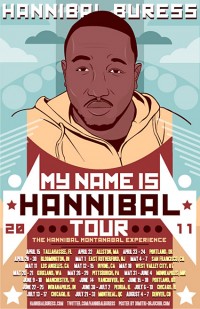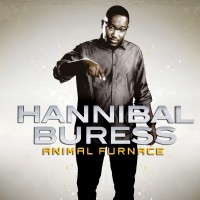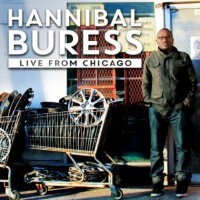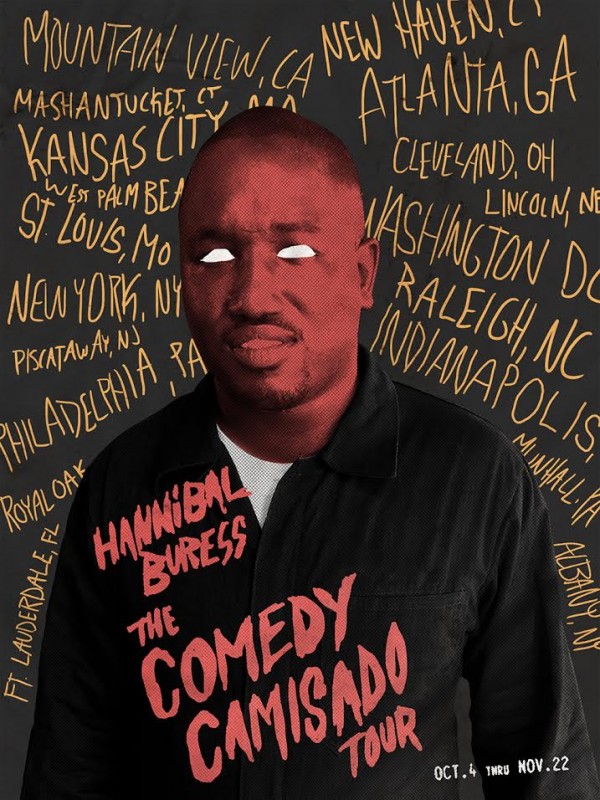 BY JONATHAN VALANIA Comedian Hannibal Buress has played a homeless man on 30 Rock who was NOT masturbating to Tina Fey, a second banana on The Eric Andre Show, and a nitrous huffing dentist/fuck buddy on Broad City. But no matter how glorious a career he goes on to have, he will forever be remembered as The Man Who Unmasked Bill Cosby, in the bit heard round the world, delivered, let us not forget, at the Trocadero (just a few hours after this interview first published on October 16th, 2014). Which confers on Philadelphia the dubious distinction of being the city that brought Bill Cosby into this world and the city that took him out. But let us not gloat and instead follow the unimpeachable example set by Buress who has had the good sense and classiness not to try and capitalize on the matter and has patently refused to discuss it since uttering those four giant-killing, lie-shattering, career-ending, history-changing words: Google Bill Cosby Rapist. Already he is showing signs of tiring of the association. But no good deed goes unpunished in this life, and among the many things lost in the Cosby furor — Fat Albert, I Spy, Cliff Huxtable, He Could Have Gone Anywhere, But He Chose Temple — is the fact that Hannibal Buress is a really fucking funny guy. See for yourself. He performs tonight at The Grand Opera House in Wilmington. DISCUSSED: Behind the scenes at 30 Rock, Louie, Broad City and The Eric Andre Show; Dave Chappelle; Bill Burr; Patrice O’Neal; and why he’s not afraid of grizzly bears.
BY JONATHAN VALANIA Comedian Hannibal Buress has played a homeless man on 30 Rock who was NOT masturbating to Tina Fey, a second banana on The Eric Andre Show, and a nitrous huffing dentist/fuck buddy on Broad City. But no matter how glorious a career he goes on to have, he will forever be remembered as The Man Who Unmasked Bill Cosby, in the bit heard round the world, delivered, let us not forget, at the Trocadero (just a few hours after this interview first published on October 16th, 2014). Which confers on Philadelphia the dubious distinction of being the city that brought Bill Cosby into this world and the city that took him out. But let us not gloat and instead follow the unimpeachable example set by Buress who has had the good sense and classiness not to try and capitalize on the matter and has patently refused to discuss it since uttering those four giant-killing, lie-shattering, career-ending, history-changing words: Google Bill Cosby Rapist. Already he is showing signs of tiring of the association. But no good deed goes unpunished in this life, and among the many things lost in the Cosby furor — Fat Albert, I Spy, Cliff Huxtable, He Could Have Gone Anywhere, But He Chose Temple — is the fact that Hannibal Buress is a really fucking funny guy. See for yourself. He performs tonight at The Grand Opera House in Wilmington. DISCUSSED: Behind the scenes at 30 Rock, Louie, Broad City and The Eric Andre Show; Dave Chappelle; Bill Burr; Patrice O’Neal; and why he’s not afraid of grizzly bears.
PHAWKER: The Eric Andre Show is fucking hilarious and anarchic and, you know,  reminds me of a low-rent Fernwood Tonight -style lampoon of late night talk shows. In the opening credits every week he totally trashes the set which is also fucking hilarious. You’re always the voice of reason of the show, the foil to his mad man. Tell me about making that show, is that all scripted or is some of that improvised?
reminds me of a low-rent Fernwood Tonight -style lampoon of late night talk shows. In the opening credits every week he totally trashes the set which is also fucking hilarious. You’re always the voice of reason of the show, the foil to his mad man. Tell me about making that show, is that all scripted or is some of that improvised?
HANNIBAL BURESS: Yeah, some situations are scripted but there’s definitely a lot of improv on the show and I mean sometimes we just sit for 20 minutes or something and then cut a minute or two out of that and use it. So there’s a lot of very cool improv.
PHAWKER: The episode where the grizzly bear was eating the set. I’m sure there was a trainer off-camera and I’m sure the bear must have been chained or something like that but tell me how that went down. How did you guys film that without getting eaten?
HANNIBAL BURESS: Well, in that episode I was actually acting ‘cause I wasn’t really scared of the bear, you know? So when I ran away from the bear right to the desk that was me acting scared. I really wasn’t and it took a few takes to really get into the character. The bear was cool to work with, very professional, showed up on time, nice to the crew, spoke to everybody. So it was cool to work with that bear, I learned a lot but I wasn’t scared at all.
PHAWKER: [laughs] I mean just to clarify for me, was the bear’s leg chained or something like that? How was it restrained?
HANNIBAL BURESS: I don’t think it was restrained.
PHAWKER: Really? That’s balls.
PHAWKER: On Broad City you play this sort of horny dentist love-interest that has a nitrous habit. Did you help create that character and how much of that show is improvised?
HANNIBAL BURESS: Yeah the nitrous thing, that was just a joke I made that one time, my character doesn’t have a nitrous habit in the show. I would say he’s reasonably horny. You know as much as any other human in a relationship. But yeah it was a good time. A lot of the characters just, you know, he’s a nice guy who’s in a relationship with Ilana where he’s kind of wild and free and she’s doing her thing, you know. That’s what the character is, really.
PHAWKER: Is that show entirely scripted out or is there a lot of improvising on camera?
HANNIBAL BURESS: That show’s mostly scripted but then there’s some improvising. Once you get what’s on the page two or three times, that take you need to do, it’s over and you try to bring something else and just figure that out. Yeah, so we improv sometimes and some stuff gets in or we change it up. As long as we’re staying on task and true to the story just playing it loose, you know. A lot of us come from an improv background. That informs our process, and improv is definitely encouraged on set.
PHAWKER: Let’s go back to the beginnings of you getting into comedy, when do you first recall as a child or a young teenager that there was such a thing as a stand-up comic and that’s what you wanted to do for a living?
HANNIBAL BURESS: It didn’t happen when I was a child or a teenager, it happened later on. I mean I was fucking around with my friends, you know, teenagers you ghost each other and make fun of each other but I didn’t think of comedy as an option even when Def Comedy Jam was huge. I remember being in high school with everybody like “Did you see Def Comedy Jam? It’s happening!” but I didn’t want to be a stand-up because it didn’t seem like something that was attainable. It was a different time. The 90’s, early 2000’s was a real different time to start out being a stand-up. There weren’t podcasts or stuff like that back then so it wasn’t really accessible to somebody. Literally. I mean you could get books or whatever but it wasn’t the easiest thing to find out about. I just started doing open mics in college cause I saw some other people doing it and I was into performing.
PHAWKER: Who would you consider primary influences as a comedian? Comedians who have come before.
HANNIBAL BURESS: Uh, big fan of Dave Chapelle, Patrice O’Neal, Chris Rock, Louis CK, Bill Burr, those are my main influences.
PHAWKER: How do you deal with hecklers? Do you have any standard put-down lines or a standard response to people?
HANNIBAL BURESS: No, I don’t really have a standard one just ‘cause, you know, it’s situational. So I have one, like it’s always funny when somebody in a crowd says something and I acknowledge it. Like they’ll yell out something and I’ll acknowledge it and riff off it and then they’ll try to yell it again to try to get that attention again and I’ll tell them “You’re a one-hit wonder, now leave it alone. It’s over with.” I mean there’s gotta be a situational.
PHAWKER: I’ve never understood that, I don’t understand why someone would actually pay money to go to see a stand-up comedian and then kind of shout over the act.
HANNIBAL BURESS: I don’t think they plan to do it but they get to something that half those people get in the moment, people you know, want to yell something. People feel like they can do it so it’s…I mean it’s a bunch of factors that play into it. It’s, you know, part of my job.
PHAWKER: You wrote for 30 Rock and had a recurring role as the homeless guy a bunch of funny scenes. Do you have any funny or interesting stories about working that show that you could share with us? Preferably that involves Alec Baldwin punching somebody that would be great if you have anything like that.
HANNIBAL BURESS: No, I don’t really have anything like that. I don’t know, it was a good time working for 30 Rock, I was a fan of the show before. So to get to work for a show that I was already a fan of the writing and the acting. Robert Carlock was the show-runner and he was great so it was an amazing show to work on, man.
PHAWKER: So how did the writing sessions go for this show? Is it a group of people, a room full of guys and gals sitting around shooting the shit, or do people break down into groups of twos or threes and sort of come up with ideas, evolve those, and bring them back to the group?
HANNIBAL BURESS: It’s kind of a bit of both. We would sit in the room and come up with ideas and story lines and then once we break all the stories, like come up with the stories for that episode in outline form and the we used to count one writer to write the script. Then they would write the draft, and they’d come in with the draft and we’d put it on the projector and we’d all kind of punch it up joke by joke. So that’s how it was but it was real collaborative and you’d bounce off some of the best writers in television.
PHAWKER: You also appeared in an episode of “Louie”, I’m assuming you are a friend or an acquaintance of Louie CK?
HANNIBAL BURESS: I opened for Louie for a couple of shows then he brought me on to do a couple bits on the show.
PHAWKER: Again, is the Louie show strictly scripted or is there also room for improv in shooting those scenes?
HANNIBAL BURESS: I don’t know about, you know, other scenes but the scene that I did—the poker scene—we shot that in…it was the only scene that we had different lines that were scripted then we shot so much that, you know, we did improv a little bit. It was a back and forth ‘cause you know a bunch of comedians so he encouraged improv.
PHAWKER: Tell me to what extent does race play in stand-up comedy as far as being able to break through to cross over. Dave Chappelle certainly opened up a lot of things for people coming after him the same way Richard Pryor did or, you know, black comedians all the way down through history. Would you agree that this is probably the best time to be a black stand-up? In the eras before this, I’m sure there were unspoken racial barriers that people had to deal with or overcome.
HANNIBAL BURESS: I can’t really, you know, speak on behalf of the time when I wasn’t in show business or what it was like to work during those times. There are a lot of black comedians on TV now working in television so…I mean I don’t know if that’s because of race or because of talent. There’s a lot more opportunities out there for people to take advantage of them.
PHAWKER: Right…last question: What advice would you offer to anybody just getting into the business now?
HANNIBAL BURESS: I would say get out of it, it’s a jungle. Get out of the business. You don’t want to be in this business, leave.
HANNIBAL BURESS PERFORMS TONIGHT AT THE GRAND OPERA HOUSE IN WILMINGTON

